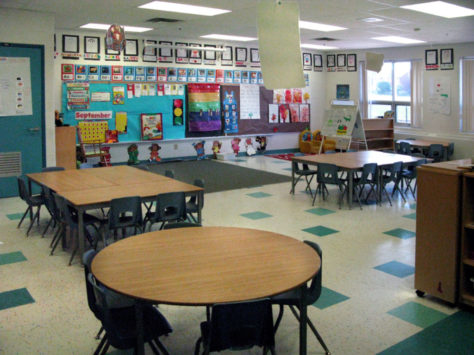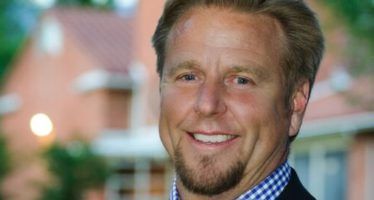Studies undercut Gov. Newsom’s claims on benefits of full-time kindergarten
 Gov. Gavin Newsom’s proposed 2019-20 budget includes $750 million in new funding to help school districts shift from part-time to full-day kindergarten. Presently, 30 percent of districts only offer part-time kindergarten, as is allowed under state law, which provides such districts the same per-pupil funding as districts with full-day kindergarten.
Gov. Gavin Newsom’s proposed 2019-20 budget includes $750 million in new funding to help school districts shift from part-time to full-day kindergarten. Presently, 30 percent of districts only offer part-time kindergarten, as is allowed under state law, which provides such districts the same per-pupil funding as districts with full-day kindergarten.
In interviews, Newsom has depicted the shift and his other proposals to beef up early childhood education as the sort of obvious ways to improve public schools that are within reach because of the state’s improved fiscal health. Assembly Budget Committee Chair Phil Ting, D-San Francisco, told the San Francisco Chronicle that Democrats in the Legislature “absolute agree” that full-day kindergarten should be a state priority. Other education stakeholders, especially teachers unions, agree.
But as debate over Newsom’s proposal ramps up, advocates of full-day kindergarten will be asked to explain why claims about its effectiveness are not corroborated by the strong majority of academic studies of such programs in California and elsewhere.
A 2009 Public Policy Institute of California study found that while parents and educators are enthusiastic about full-day kindergarten, “research to date … has provided little evidence of long-term academic benefits beyond kindergarten or first grade.” This was backed up by a peer-reviewed 2012 study of some kindergartners’ results in California standardized tests.
The single study that appears to have been based on the most data – a RAND think tank analysis of the academic performance of nearly 8,000 kindergarten students in the 1998-99 school year – was even more downbeat. While RAND offered some qualifications, it said that overall, its research “reinforces the findings of earlier studies that suggest full-day kindergarten programs may not enhance achievement in the long term. Furthermore, this study raises the possibility that full-day kindergarten programs may actually be detrimental to mathematics performance and to nonacademic readiness skills.” The latter is a reference to students’ willingness to take instruction and participate constructively in class.
Duke study one of many to find initial benefits fade
These conclusions were supported by a peer-reviewed study released in 2010 by Duke University researchers. It found that initial benefits from attending full-day kindergarten “disappeared” by third grade and that “children may not have as positive an attitude toward school in full-day versus half-day kindergarten and may experience more behavior problems.”
However, on its website, the National Education Association depicts the benefits of full-day kindergarten as largely beyond challenge. An “advocacy guide” cites reporting by Deborah Viadero of Education Week showing that a study of 17,000 students in Philadelphia had found enduring gains from full-day kindergarten. But Viadero has also reported on other studies that reflect the phenomenon cited by other researchers of initial gains by kindergartners disappearing in subsequent years.
The NEA also cites research by the San Francisco-based WestEd advocacy group, in particular a 2005 policy brief that doesn’t refer to or offer counterarguments to any of the studies that raise doubts about whether the benefits of full-time kindergarten endure.
More recently, in 2014, the New America Foundation – which, like WestEd, has long called for greater investment in public schools – touted a study by Chloe R. Gibbs at the University of Virginia that the foundation called the “best research yet on the effects of full-day kindergarten.” New America said the study “holds some preliminary good news for proponents of full-day kindergarten.”
But the New America account of the study went on to note that it was too soon to conclude whether the initial gains identified by Gibbs would last – the central issue raised by most previous academic research.
Chris Reed
Chris Reed is a regular contributor to Cal Watchdog. Reed is an editorial writer for U-T San Diego. Before joining the U-T in July 2005, he was the opinion-page columns editor and wrote the featured weekly Unspin column for The Orange County Register. Reed was on the national board of the Association of Opinion Page Editors from 2003-2005. From 2000 to 2005, Reed made more than 100 appearances as a featured news analyst on Los Angeles-area National Public Radio affiliate KPCC-FM. From 1990 to 1998, Reed was an editor, metro columnist and film critic at the Inland Valley Daily Bulletin in Ontario. Reed has a political science degree from the University of Hawaii (Hilo campus), where he edited the student newspaper, the Vulcan News, his senior year. He is on Twitter: @chrisreed99.
Related Articles
Longshot Senate candidate pledges to vote will of the majority of voters
What if there was a website where registered voters could log their opinions on the bills before Congress, which would
CA Senate wades into police videotaping controversy
Faced with mounting criticism over civil liberties abuses, lawmakers in Sacramento greenlit a so-called clarification of Californians’ right to videotape and
Bankruptcy could cut San Bernardino fire pensions
It was a hot 102 degrees last Thursday in San Bernardino — perfect weather for a city bankruptcy “cramdown.” Federal Bankruptcy Court Judge




